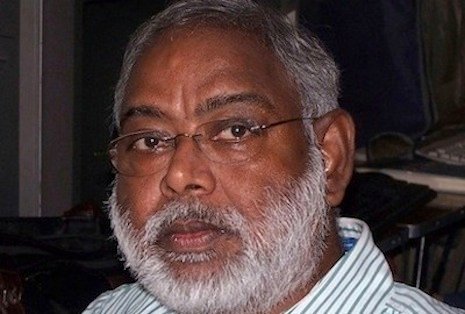Discontent brews among India's laity
 Anger is brewing among the Catholic laity in India, especially those of the Latin Rite. The fresh air that Pope Francis has brought to the Universal Church has fanned a ferment, born of increasing frustration over laypeople’s perception that bishops, both individually and collectively, have chosen not to respond to their various appeals over the years.
Anger is brewing among the Catholic laity in India, especially those of the Latin Rite. The fresh air that Pope Francis has brought to the Universal Church has fanned a ferment, born of increasing frustration over laypeople’s perception that bishops, both individually and collectively, have chosen not to respond to their various appeals over the years.
They are now considering a direct appeal to the pope if the CBCI – the Catholic Bishops Conference of India - does not give them a fair hearing.
This appeal was suggested at the annual general meeting of the 93-year-old All India Catholic Union (AICU) which concluded in Kolkata last week, and the two day session of the Laity Assembly that followed.
It had been intended as an ambitious “Laity Synod” in the national capital. But the AICU was forced to change its name to “Laity Assembly,” in the face of objections from bishops who maintained that they alone had the canonical right to convene synods.
The general consensus at the assembly seemed to point to a continuing, wide communication gap between the people and many of the bishops who govern the country’s 166 dioceses - 129 of them Latin, 29 Syro-Malabar and eight Syro-Malankara.
There are brilliant examples of great collaboration between the faithful, bishops and clergy. But Catholic Union leaders feel that in many dioceses, even basic provisos of the Code of Canon Law have not been observed, on issues of transparency, governance and the participation of the people.
They are particularly galled by the non-implementation of Canonical provisions on diocesan and parish finance committees; provisions which state that members should include people who have expertise in financial management. It is widely thought that clergy and hierarchy have been known to discourage participation by the laity, whom they see as potential troublemakers or a challenge to vested interests.
Except on issues of faith and catechetical literacy, the formation and training of lay people is also seen as less than satisfactory. Yet this training is desperately required in India’s very diverse Church, with communities of tribals and Dalits and other sharp distinctions based on caste and mother tongue.
The laity also feels aggrieved that the leadership keeps them at arms length in the management of institutions such as schools, colleges and other structures of diocesan administration. Lay involvement is much higher in most other countries.
The argument is that in India, the bishops and clergy spend too much time in administrative affairs at the cost of pastoral care to the people. This lack of care is a major reason why Catholics in large numbers are leaving the Church and joining Pentecostal groups, a phenomenon that is also rampant elsewhere such as Latin America.
The formal report of the Laity Assembly is expected to be published in October or November and there are clear hints that it will be all but an indictment of the Church leadership.
It remains to be seen if the hierarchy will lend an ear to the call of the people, even if the leaders have heard the pope express similar feelings.
John Dayal is the general secretary of the All India Christian Council and a member of the Indian government’s National Integration Council.


 Votes : 0
Votes : 0









